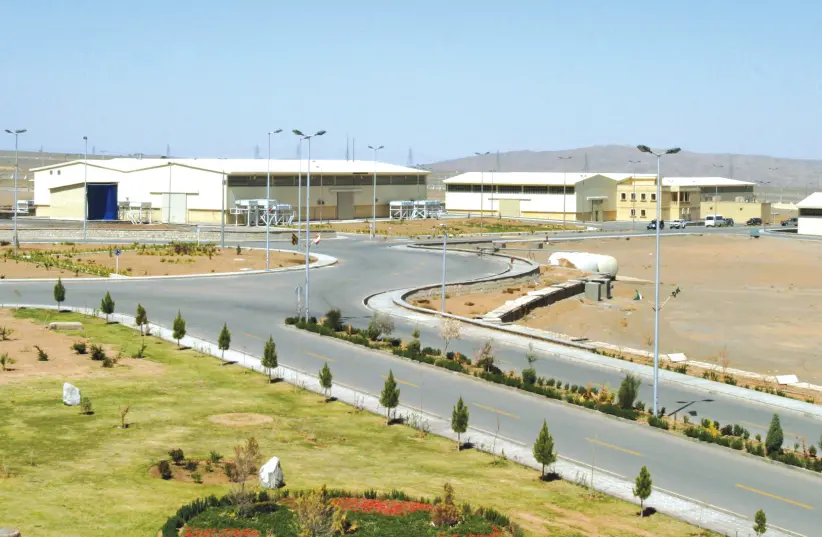There are indications that the disruptions in Natanz were the result of a cyberattack, and, as always, all eyes are on Israel when these things happen.
There’s a negotiating strategy used in the Knesset during budget debates called “the goat,” which the Iranian regime seems to be very familiar with – though they probably have another name for it.
It’s been a few years since there was a real budget debate in Israel, so here’s a reminder of what “the goat” means: There’s a Jewish folktale about a man who complained to the rabbi that his family was too cramped in their tiny one-room shack.
The rabbi told the man to bring his chicken into the house. The man went back to the rabbi and said they feel even more cramped. The rabbi told the man to bring his goat into the house. The man went back to the rabbi and said the house is now so cramped, they cannot live in it for one more day.
The rabbi told the man to put the chicken and goat outside. The man went back to the rabbi and said he now feels like he has plenty of space.
The moral of the story is supposed to be to appreciate what you have because it could always be worse.
But in Israeli budget negotiations, “the goat” represents a tactic of adding more and more demands so that when you remove them, you look like you’re making concessions to get what you actually wanted in the first place.
That is exactly what Iran seemed to be doing over the weekend.
On Friday, the US and Iran continued indirect negotiations for their return to the Iran deal. Though some of the other parties to the Iran deal expressed optimism that an agreement can be reached, Iran maintained its stance that all post-2015 sanctions be removed before it takes any steps to return to compliance with the deal’s nuclear limitations. Soon after, a senior US State Department official said if Iran doesn’t budge, then the sides will reach an impasse.
The next day, Iran further breached the Joint Comprehensive Plan of Action by launching advanced uranium enrichment machines at the underground nuclear facility in Natanz.
This seems like it was a gambit by Iran to have a longer list of items that it can scale back from in negotiations, while still ending up closer to a nuclear bomb than the JCPOA originally allowed for it to reach.
Then, less than a day later, there was a mysterious power outage in Natanz that derailed the whole thing.
Though Iran’s Atomic Energy Organization confirmed that an “accident” occurred at the facility, there was no official acknowledgment of foul play. Still, some Iranian lawmakers have blamed it on “sabotage” and “infiltration,” Iranian journalist Abas Aslani tweeted on Sunday.
There are indications that the disruptions in Natanz were the result of a cyberattack, and – as always – all eyes are on Israel when these things happen. And Iran has yet to recover from recent “incidents,” such as a July 2020 explosion that set back its nuclear program.
Iran, of course, claims its nuclear program is for peaceful purposes. But its adversaries in the region and beyond are hard-pressed to believe the ayatollahs’ regime in light of its aggression across the Middle East and its calls to wipe Israel off the map. Those are the legitimate defensive aims of a possible attack on the uranium enrichment machines in Natanz.
Israel and others in the region, as well, certainly have been eyeing the talks in Vienna with concern that the US and Iran may truly return to the 2015 nuclear deal, which would lift nuclear limitations on Tehran in 2030, and not make it “longer and stronger” as Washington has promised it would.
Now, when it comes to nuclear negotiations, it looks like someone got Iran’s goat.
 Eurasia Press & News
Eurasia Press & News




